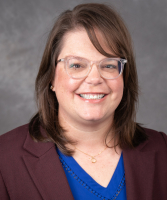Partnering to improve colon cancer screening rates across Wisconsin


A project to improve colon cancer screening rate at federally qualified health centers (FQHCs) is being led by Noelle LoConte, MD, associate professor, Hematology, Medical Oncology and Palliative Care.
FHQC facilities are designed to care for people living in poverty. Thanks to a five-year, $2.5M grant from the Centers for Disease Control and Prevention, Dr. LoConte and colleagues are conducting an outreach program to FQHCs to increase screening through improvement such as reminders in the electronic health record platform.
Just over two years into the outreach, screening rates have improved at each of the 9 partner health systems in Wisconsin, to a combined average of 49 percent.
Sarah François, director of fund development and marketing at pilot partner site Progressive Community Health Centers, is excited about the improvement. “We look forward to continuing this important work and sharing best practices with our peers.”
The team hopes to conduct follow-up work to understand why approximately 40 percent of patients at FQHCs who test positive on initial screening tests do not go on to receive a diagnostic colonoscopy, the gold standard in diagnosing colon cancer.
“That’s really a big drop-off, and I’m hoping to get additional funding to understand why that happens and to implement strategies within FQHCs to decrease that number,” said Dr. LoConte.
Resources:
- "Partnering to Improve Colon Cancer Screening Rates Across Wisconsin," UW Health, February 2, 2018
Photo caption: The fecal immunochemical test (FIT) screens for human blood in the stool.